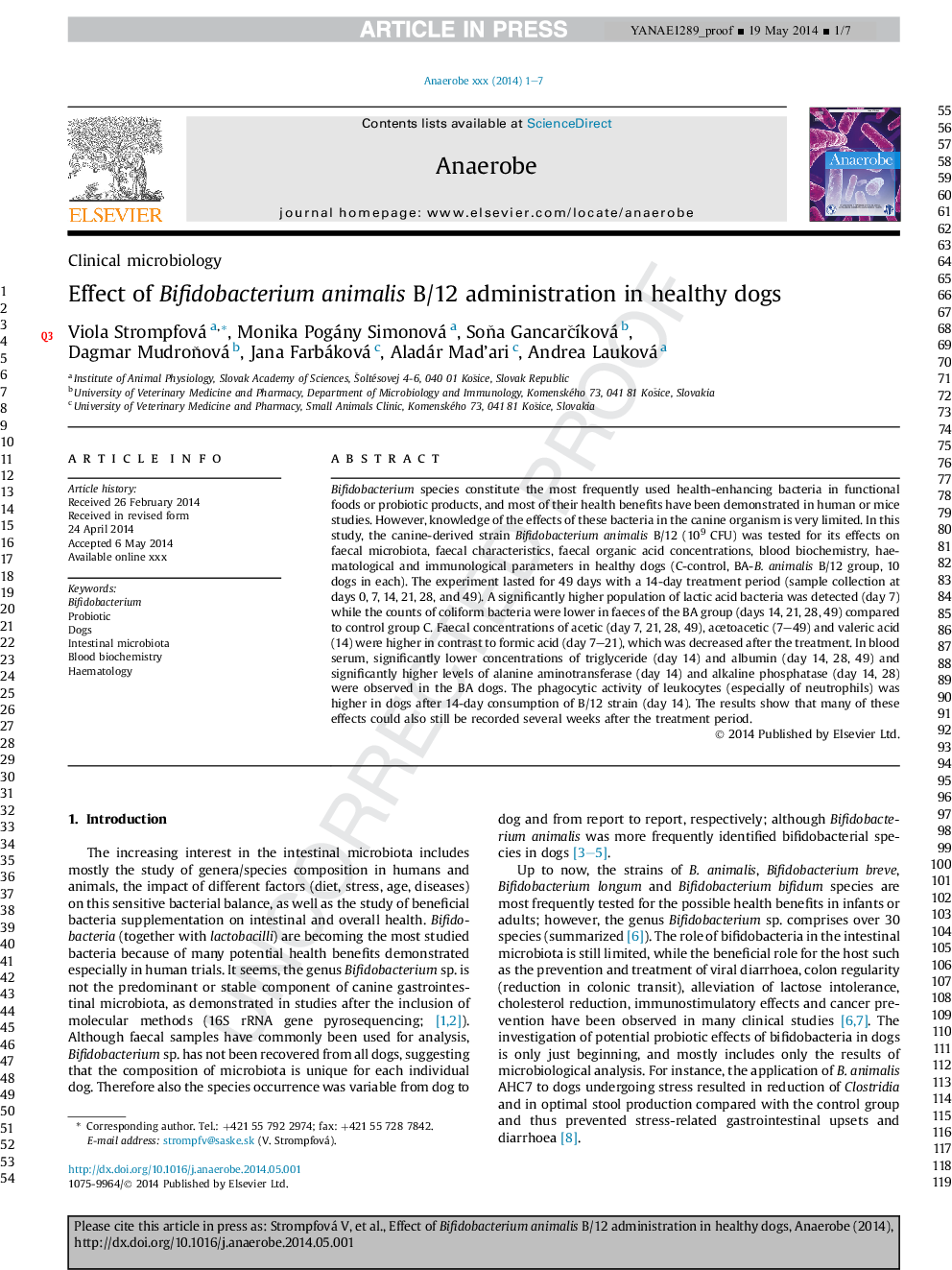| Article ID | Journal | Published Year | Pages | File Type |
|---|---|---|---|---|
| 6128679 | Anaerobe | 2014 | 7 Pages |
Abstract
Bifidobacterium species constitute the most frequently used health-enhancing bacteria in functional foods or probiotic products, and most of their health benefits have been demonstrated in human or mice studies. However, knowledge of the effects of these bacteria in the canine organism is very limited. In this study, the canine-derived strain Bifidobacterium animalis B/12 (109Â CFU) was tested for its effects on faecal microbiota, faecal characteristics, faecal organic acid concentrations, blood biochemistry, haematological and immunological parameters in healthy dogs (C-control, BA-B. animalis B/12 group, 10 dogs in each). The experiment lasted for 49 days with a 14-day treatment period (sample collection at days 0, 7, 14, 21, 28, and 49). A significantly higher population of lactic acid bacteria was detected (day 7) while the counts of coliform bacteria were lower in faeces of the BA group (days 14, 21, 28, 49) compared to control group C. Faecal concentrations of acetic (day 7, 21, 28, 49), acetoacetic (7-49) and valeric acid (14) were higher in contrast to formic acid (day 7-21), which was decreased after the treatment. In blood serum, significantly lower concentrations of triglyceride (day 14) and albumin (day 14, 28, 49) and significantly higher levels of alanine aminotransferase (day 14) and alkaline phosphatase (day 14, 28) were observed in the BA dogs. The phagocytic activity of leukocytes (especially of neutrophils) was higher in dogs after 14-day consumption of B/12 strain (day 14). The results show that many of these effects could also still be recorded several weeks after the treatment period.
Related Topics
Life Sciences
Immunology and Microbiology
Microbiology
Authors
Viola Strompfová, Monika Pogány Simonová, SoÅa GancarÄÃková, Dagmar MudroÅová, Jana Farbáková, Aladár Mad'ari, Andrea Lauková,
